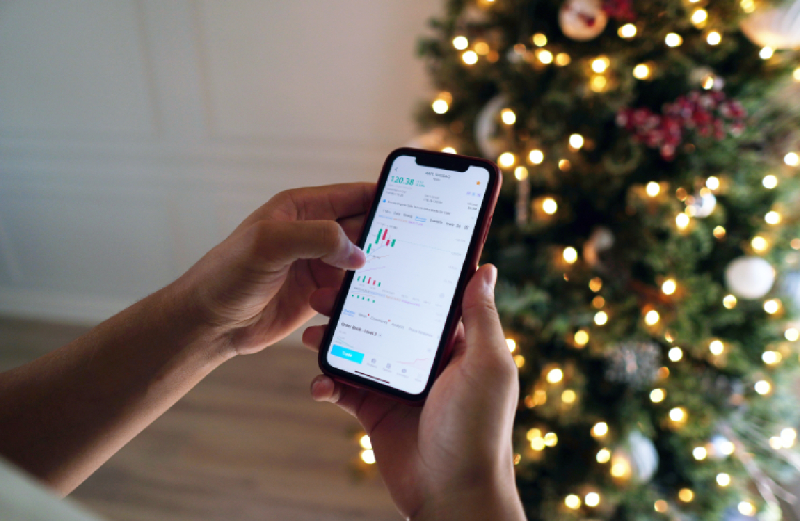My first time investing with a robo-advisor: Here's what you should know beforehand


Among all the #adulting things that I need to contend with, investing is the one that is the most foreign to me. That's probably due to the fact that I've never had the spare cash to be able to commit to it until now. Now that I've taken more ownership of my finances, I've started dabbling in robo-advisors.
It seems like I'm not alone. There is a growing trend among young professionals who have gravitated towards the robo-advisor market. With over 10 robo-advisory platforms currently operating in the country and licensed by the Money Authority of Singapore (MAS), the number of users is expected to reach over 800,000 by 2027, according to Statista.
Gone are the days where you needed huge starting capital or access to a brokerage to start dabbling in the stock market. Robo-advisors have become hugely popular with retail investors due to their low barrier of entry and digital convenience. But is it truly worth the hype?
Having previously been sceptical about jumping on the bandwagon, I finally relented and started my investment journey with a robo-advisory platform in early 2022. Two years later, I'm here to share my experience and debunk some of the myths that I previously believed to be true about robo-advisors.
This might sound like a big duh, but it's worth clarifying. In layman terms, robo-advisors are essentially digital wealth management and investment apps that use automated algorithms to invest your money. This helps to streamline the process and requires minimal human supervision, unlike a typical fund manager.
However, that does not mean no humans are involved at all. The investment platform that I've been using, Syfe, for example, offers regular seminars and the ability to schedule a call with their wealth advisors to help walk you through their products and services.

Personally, I've found the Syfe interface really easy to understand. Once I've created my account, set up my investment goals, and filled up my risk appetite (be honest here!), the app would then recommend a managed portfolio that is best suited to your knowledge of the market.
I've only ever had to call my wealth advisor once just to understand the different investment strategies to utilise and quell my doubts (which would allow me to sleep peacefully at night), and it's been smooth sailing ever sin
While robo-advisors can suggest a suitable managed portfolio for you, one thing they can't guarantee is whether you will lose any money on your investment. Here's the cold, hard truth. There is always an inherent risk when it comes to investing in the stock market.
You can have the savviest fund manager keep an eye on your portfolio or the most advanced AI algorithm ever created, but there will always be volatile market forces at play. So, don't rush to put out a bad app review just because you took a hit on your Apple stocks.

Find out your risk profile beforehand and do your own research on the stocks, bonds, or exchange-traded funds (ETFs) that you choose to invest in. I would also recommend a system of dollar-cost averaging (DCA), as consistency trumps timing the market any day. But then again, I'm no financial advisor, so don't @ me.
However, a simple rule that I would adhere to is to not invest money that I would need in the short-term. I've personally seen my investment go up and down, but it would do me no good if I kept fixating on it. The best investment advice I've ever gotten is that it's only a loss if you sell your stock.
As I've mentioned above, robo-advisors are generally more affordable and have a lower barrier of entry than traditional investment firms. There is also a low minimum deposit to get started. Some robo-advisors like Syfe and StashAway don't even have a minimum deposit amount, which makes them hugely attractive to people just starting out in their careers.
While it's all fine and dandy, there might also be hidden costs that you should be aware of. While some apps offer tiered fees depending on the amount of money you invest, others might charge yearly management or platform fees.
Then there are those who might include a transaction cost for each purchase and sale of a stock or impose a lock-in period where you might be penalised for withdrawing your investment earlier. The onus will then be on you to read the fine print and clarify with your chosen robo-advisory on these hidden fees.
Well, the next question would then be, aren't all robo-advisors the same? While, in theory, they all follow a similar blueprint, the main differences lie in their investment strategies, methodologies, costs, and even user experience.
While it is still a growing market, the main players in the robo-advisory industry have made a concerted effort to stand out from the crowd.
For example, Endowus prides itself on being the first CPF digital advisor in Singapore, meaning you can use your CPF savings to invest through the app. I must say, their marketing is A+ as well.
Apps such as DBS digiPortfolio and OCBC RoboInvest are really convenient to use if you already have an account with those banks.
Then you have Stashaway and my personal favourite, Syfe. Both platforms build their investment strategies around ETFs, which is an efficient and low-cost way to diversify your portfolio. The lack of a minimum deposit is also highly appealing. Personally, I started investing with Syfe with only S$100.
[[nid:497753]]
At the end of the day, I'm just a lazy guy. When you're already working long hours and have a social life to manage, the last thing I would want to do is dedicate more brain power to learning about investing when it's such a complex topic.
In this regard, a robo-advisor is perfect for me, as it eliminates the tediousness of investing and automates the process. While I'm in no way a savvy investor just yet, such low-cost platforms help give newbies and noobs an easier way to access the markets.
Personally, I've enjoyed my experience with Syfe thus far and its recent rebrand. It has a supremely intuitive user interface, access to brokerage services, and even useful articles to help me improve my financial literacy.
But make sure you do a comparison with what's available out there so that you can choose a platform that's aligned with your current needs. Also, don't be afraid to call up the humans behind these robo-advisors and help make them make sense.
This article was first published in Wonderwall.sg.